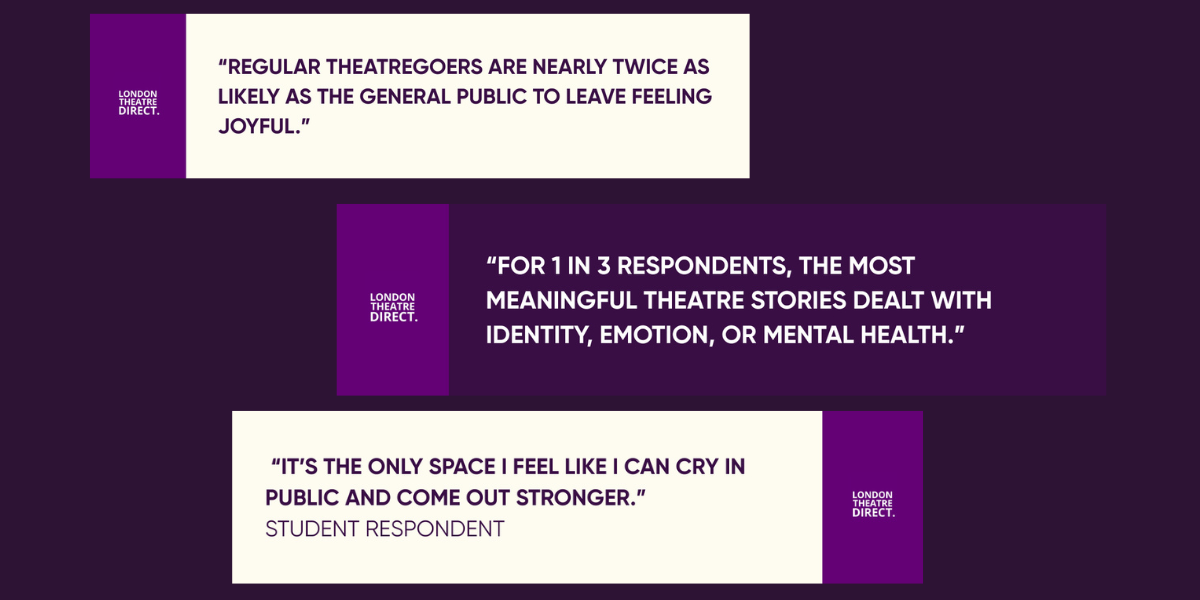Theatre as Self-Care: Why a Night Out Can Be Good for Your Mental Health
Posted on
| By
Hay Brunsdon
What if a night at the theatre was more than just entertainment? Recent research from London Theatre Direct and Joyfulness Approved suggests that live theatre is a powerful tool for emotional wellbeing. Surveying 4,375 UK adults, the study reveals that theatre offers joy, connection, and even mental clarity in a screen-saturated world.
Joy, Connection, and Digital Detox
Theatre tops the list of joyful nights out for many. One in four people ranks it among their top three evenings, ahead of cinema, sport, and clubbing. It’s not just the story that resonates — 43% cite the energy of live performance, and 36% the atmosphere, as reasons for their delight. Women and higher-income audiences are especially likely to report theatre as a source of joy, but appreciation spans all groups, showing its universal appeal.
Beyond enjoyment, theatre acts as a digital detox. Over half of regular attendees report feeling more refreshed after a show than after screen time, with three in four 25–39-year-olds seeing theatre as a true break from their devices. This mental reset is increasingly important in an age of digital fatigue.

The Emotional Power of Live Performance
Regular theatre-goers are also twice as likely as the general public to leave a show feeling joyful, uplifted, or inspired, with positive effects lasting days. Shows often spark meaningful conversations: three in four attendees say a performance led to discussion about life, emotions, or shared experiences. Young men, students, and non-binary audiences report particularly strong emotional connections, while retirees and regional audiences often experience theatre as a space for reflection and conversation.
The emotional impact also varies by genre. Uplifting musicals lead the way, but stories of grief, resilience, identity, and mental health — from Les Misérables to Wicked and Matilda The Musical — strike deep and enduring chords. Theatre offers a rare space to process complex feelings, affirm identity, and explore human vulnerability.
A space that no screen can replicate
Ultimately, theatre is more than escapism; it’s a form of self-care. Over three-quarters of regular theatregoers say it’s part of their emotional routine. It provides a shared, embodied space to feel, reflect, and connect — a space that no screen can replicate. In a world craving presence, attention, and meaningful connection, live performance is emotional infrastructure: a place to laugh, cry, think, and leave feeling alive.
Read the full Emotional Impact of Live Theatre: Insight Report now.